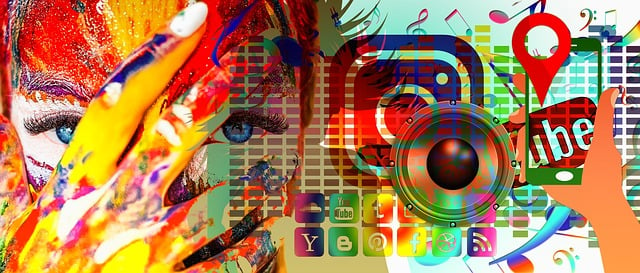The healthcare industry is increasingly recognizing the impact of social media on mental health. This is because of the growing evidence that suggests that social media use has a significant effect on people’s mental and emotional well-being. Social media has been linked to a range of mental health issues, including depression, anxiety, stress, and low self-esteem.
The potential impact of social media on mental health is becoming increasingly evident. Research has shown that excessive use of social media can lead to a decrease in self-esteem, increased anxiety, and a decrease in physical activity. Additionally, research has indicated that the use of social media can lead to a decrease in face-to-face social interaction, which can further contribute to depression and anxiety.
In the healthcare industry, the potential impact of social media on mental health is of great concern. Mental health professionals are taking note of the increasing evidence that suggests that social media use can have a significant effect on mental health and well-being. Healthcare professionals are also looking into ways to help people better manage their social media use in order to prevent negative mental health outcomes.
Healthcare providers are beginning to recognize the need for more education and awareness about the potential impact of social media on mental health. They are developing strategies to help individuals identify and manage the risks associated with social media use. Additionally, healthcare providers are working to provide resources and support to those who are struggling with the effects of social media use.

There are a number of ways in which healthcare providers can help individuals manage their social media use and reduce the potential impact on mental health. One of the most important strategies is to help individuals develop a healthy relationship with social media. This can include setting boundaries for social media use, limiting the amount of time spent on social media, and avoiding activities that can be emotionally draining. Additionally, healthcare providers can provide resources and support to help individuals identify and manage the risks associated with social media use.
Healthcare providers can also help individuals understand the potential impact of social media on mental health. This can include helping individuals identify the signs and symptoms of mental health problems, such as depression, anxiety, and stress. Healthcare providers can also provide resources and support to help individuals better manage their social media use and reduce the potential impact on mental health.
The Benefits of Social Media
Social media can be a fantastic tool for networking on both a professional and personal level. You are able to connect with like-minded individuals and build relationships with those that share similar interests or careers. For example, LinkedIn is an excellent platform for networking with other professionals and potentially finding job opportunities.
Another benefit of social media is the ease of access to information. You can find news updates, research studies, and other useful information with just a few clicks of your mouse. Social media platforms such as Twitter and Facebook can be especially useful for staying up to date with current events and trending topics.
The Negative Effects of Social Media on Mental Health
Individuals posting on social media typically only post about the good aspects of their lives. The bad is never mentioned. This could mean that other people start to compare their own lives with something that is not real. When you only see the positive all the time, it is quite easy to feel inadequate. Social media users often end up with feelings of envy and believe that their own life is somehow lacking.
Unfortunately, the digital world has led to a subsequent rise in cyberbullying. Those that way inclined can be very cruel, and a lot of this is down to the perceived safety of anonymity. They can target certain individuals they see on social media and say hurtful things. All without giving any regard to how their words are impacting the mental health of the targeted individual.
Social media can also have a damaging effect on mental health due to it being so addictive. It is quite common for people to spend hours scrolling through social media feeds. Indeed, some literally lose hours of their lives to this pursuit. They often end up with feelings of anxiety and depression as they start to compare themselves to others, or they feel overwhelmed by the amount of information and content available to them.
How to Prevent Social Media from Affecting Your Mental Health
Fortunately, though, there are steps an individual can take to mitigate these negative effects of social media on mental health. One of the most effective strategies is to limit social media use and set boundaries around when and how often to check social media feeds. It can also be helpful to curate social media feeds to include positive, uplifting type content that promotes mental health and well-being.
According to the experts at Horizon Health, another important strategy is to seek out professional help. Mental health consulting can provide support to manage the negative impact of social media on mental health.
Conclusion
Nowadays, social media is an integral part of life. It helps connect us with others and provides a platform for self-expression. But while we should be concerned about the impact social media can have on mental health, it is also important to recognize that it can be positive too. To balance the good with the bad, use it mindfully.